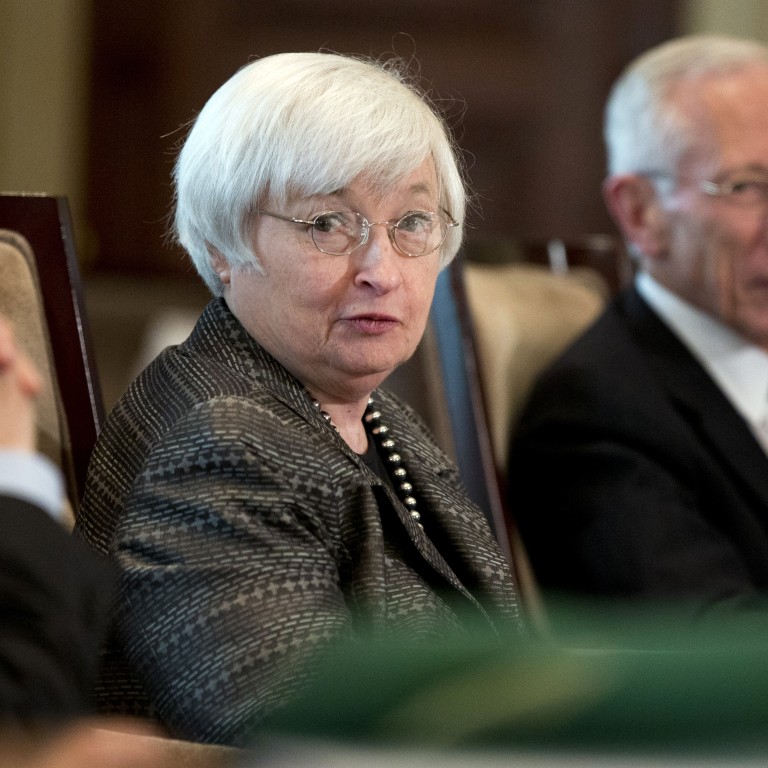
US Fed and Bank of England trapped in monetary maze in struggle for higher rates
The US and UK central banks have dug themselves into a very deep policy hole. Six years ago they rushed into quantitative easing and slashed interest rates down to zero without a credible exit strategy. Now they are trapped in a monetary maze with no easy way out.
The US Federal Reserve and the UK Bank of England have hit a brick wall. They want to return their super-stimulative monetary policies back to more restrictive settings, but global economic conditions are standing in the way.
Financial market confidence has gone into meltdown mode, stock markets are tumbling and lacklustre business surveys are re-igniting world growth fears. Despite what the central banks say, it will be a major uphill struggle to raise rates without adding to the collateral damage.
There has been a massive tectonic shift in recent years and a new global dynamic is at play. Consumers, businesses and investors have all got used to cheap and plentiful money, which has been the quick fix for policymakers’ over the last six years to solve the global financial crisis. It will be extremely difficult to wean them off the dependency without harmful effects.
If the ‘new normal’ is a global over-reliance on easy money, the central banks could end up being a major source of market instability every time they threaten to take back the excess policy slack. The Fed discovered this to their cost with the infamous 2013 ‘taper tantrum’, when global markets went into knee-jerk reverse over speculation that the Fed’s bond-buying programme was about to end.
For many months, the Fed has been struggling over the timing of a future rate rise given its growing concern about the weak international outlook. Amid signs of spreading investor panic and especially after last Friday’s 3 per cent sell-off in US equity markets, the Fed must shelve plans to raise rates as early as next month.
Unless stock markets settle down fairly soon, the Fed will have to rule out higher rates for the rest of the year too. Under no circumstances should the Fed add to financial market instability.
Policymakers now face a difficult task. Right now there is nothing more they can do to check the slide in economic confidence and stop the rot in market sentiment. The policy pot of conventional rescue remedies has been exhausted. Interest rates are at rock bottom and the world economy is already feeling the effects of ‘QE exhaustion’.
Markets are not only fretting about the US and UK unwinding their QE programmes, worth around 5 trillion dollars in total to the world economy, but QE efforts in the Eurozone and Japan are losing their novelty with investors. The world has become blasé to QE’s merits.
It is time for the Fed and the BOE to end the uncertainty. They need to end the whispering campaign for higher rates and give better assurance to the markets that the policy bias will remain in a supportive vein until stronger, sustainable growth is in the bag.
It is a wild leap of faith for both banks to try convincing the markets on the need for higher rates to deal with future inflation risks and especially while price pressures remain so dormant. The collapse in global commodity prices, the dramatic fall in the cost of crude oil and the strength of both the dollar and sterling guarantee headline inflation will remain muted for a long while yet.
In the case of the UK, the strength of the pound is not only keeping a lid on inflation, but it is also imposing a significant drag on growth. The 10 per cent rally in the pound’s value over the last year is the monetary equivalent of a 3 per cent rise in short term interest rates.
In recent months, the pound’s rally has been a one-way bet for investors encouraged by the BOE’s obvious tilt towards higher rates. It is time to tone down the hawkish message on rates or else growth prospects will suffer even more.
If the Fed and BOE are rushing to raise rates to establish better traction for future monetary policy operations, then they are playing a very dangerous game. Global markets are in such a parlous state right now that only a small hike could spark a new world economic crisis.
The stakes are far too high. If the Fed and the BOE persist with sabre-rattling on rates, they will inflict a fatal blow on the global recovery. This time there will be no quick fixes.

